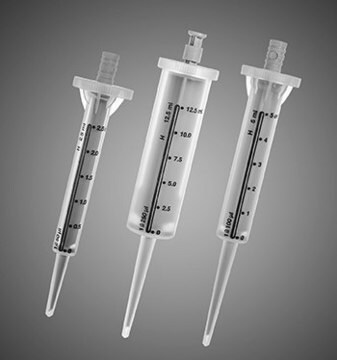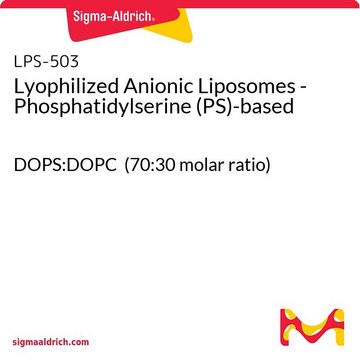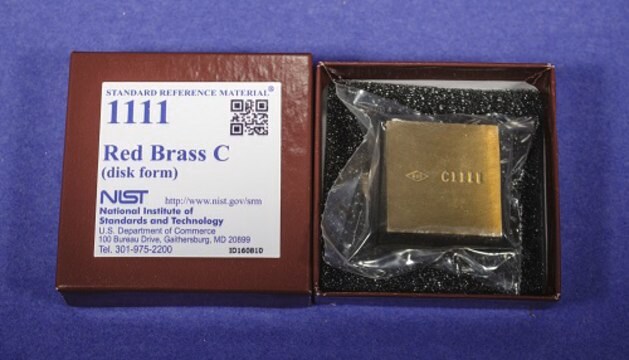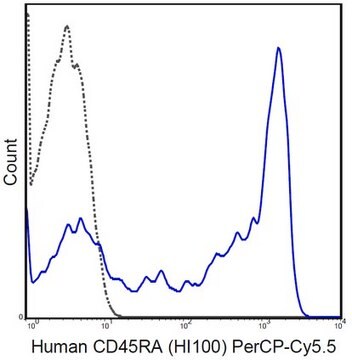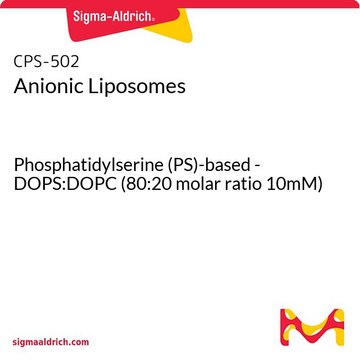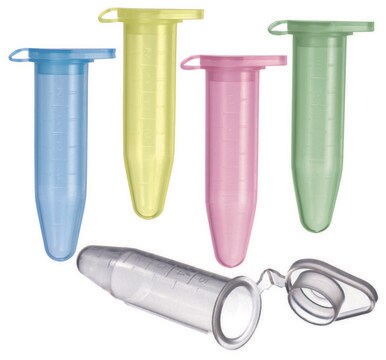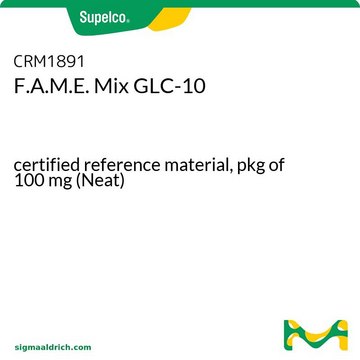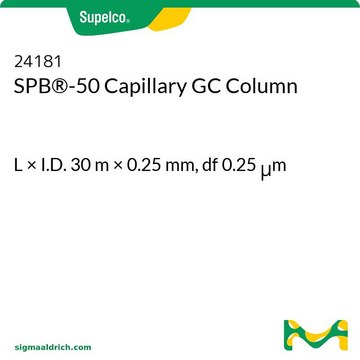MABF733
Anti-KLRG1 Antibody (mouse), APC, clone 2F1
clone 2F1, 0.2 mg/mL, from hamster(Syrian)
Synonyme(s) :
Killer cell lectin-like receptor subfamily G member 1, Mast cell function-associated antigen 2F1
About This Item
Produits recommandés
Source biologique
hamster (Syrian)
Niveau de qualité
Conjugué
Allophycocyanin conjugate
Forme d'anticorps
purified antibody
Type de produit anticorps
primary antibodies
Clone
2F1, monoclonal
Espèces réactives
mouse
Conditionnement
antibody small pack of 25 μg
Concentration
0.2 mg/mL
Technique(s)
flow cytometry: suitable
immunoprecipitation (IP): suitable
Isotype
IgG
Numéro d'accès UniProt
Conditions d'expédition
wet ice
Modification post-traductionnelle de la cible
unmodified
Informations sur le gène
mouse ... Klrg1(50928)
Catégories apparentées
Description générale
Immunogène
Application
Inflammation & Immunology
Qualité
Flow Cytometry Analysis: 0.06 μg of this antibody detected KLRG1 in one million C57Bl/6 splenocytes.
Forme physique
Stockage et stabilité
Clause de non-responsabilité
Vous ne trouvez pas le bon produit ?
Essayez notre Outil de sélection de produits.
Code de la classe de stockage
12 - Non Combustible Liquids
Classe de danger pour l'eau (WGK)
nwg
Certificats d'analyse (COA)
Recherchez un Certificats d'analyse (COA) en saisissant le numéro de lot du produit. Les numéros de lot figurent sur l'étiquette du produit après les mots "Lot" ou "Batch".
Déjà en possession de ce produit ?
Retrouvez la documentation relative aux produits que vous avez récemment achetés dans la Bibliothèque de documents.
Notre équipe de scientifiques dispose d'une expérience dans tous les secteurs de la recherche, notamment en sciences de la vie, science des matériaux, synthèse chimique, chromatographie, analyse et dans de nombreux autres domaines..
Contacter notre Service technique